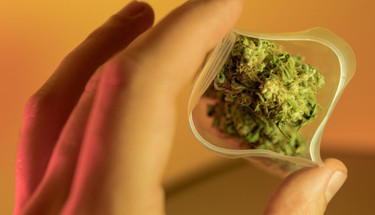Jul 16th 2023
THC-P Exploring the Latest Cannabinoid Discovery
The world of cannabinoids continues to evolve, and researchers are constantly uncovering new compounds with potentially intriguing properties. One such compound that has recently gained attention is THC-P (Tetrahydrocannabiphorol). In this blog, we will explore the definition and benefits of THC-P, shedding light on its unique characteristics and potential therapeutic applications.
Understanding THC-P
THC-P is a newly discovered cannabinoid that shares similarities with its well-known counterpart, THC (tetrahydrocannabinol). Like THC, THC-P is a psychoactive compound found in cannabis. However, THC-P is believed to be significantly more potent than THC, potentially resulting in more profound effects even at lower doses.
THC-P's chemical structure differs slightly from THC, as it contains a pentyl side chain instead of a propyl side chain. This structural variation may contribute to its enhanced potency and altered interaction with cannabinoid receptors in the body.
Benefits of THC-P
While research on THC-P is still in its early stages, initial findings suggest potential benefits that set it apart from other cannabinoids. Here are some of the potential advantages associated with THC-P:
- Potency: THC-P is believed to be much more potent than THC. This increased potency means that individuals may experience stronger effects even with smaller doses, potentially leading to better symptom relief and therapeutic outcomes.
- Euphoria and Mood Enhancement: Like THC, THC-P has the potential to induce euphoria and alter mood. This may offer therapeutic benefits for individuals experiencing depression, anxiety, or other mood-related disorders.
- Pain Relief: The analgesic properties of cannabinoids, including THC, are well-documented. THC-P's enhanced potency may make it a promising candidate for pain management, potentially providing more substantial relief for individuals with chronic pain conditions.
- Neuroprotective Properties: Cannabinoids, including THC, have shown promise in protecting the brain from damage caused by neurodegenerative diseases. Preliminary research suggests that THC-P may possess similar neuroprotective effects, potentially opening new avenues for treating conditions like Alzheimer's and Parkinson's disease.
- Appetite Stimulation: THC has long been associated with stimulating appetite, commonly known as the "munchies." THC-P may exhibit similar effects, making it potentially beneficial for individuals with appetite loss or eating disorders.
The Future of THC-P Research
As THC-P is a newly discovered compound, extensive research is still required to fully understand its potential benefits and safety profile. Scientists are actively investigating its pharmacological properties, interactions with cannabinoid receptors, and overall effects on the body.
It is important to note that, like other cannabinoids, THC-P may have side effects, especially at higher doses. These can include short-term memory impairment, increased heart rate, dry mouth, and potential cognitive effects. Further research is needed to determine the optimal therapeutic dosage and potential long-term effects of THC-P.
Conclusion
THC-P, a recently discovered cannabinoid, has sparked excitement in the scientific community for its potentially enhanced potency and unique characteristics. While research is ongoing, early findings indicate that THC-P may offer a range of benefits, including increased potency, mood enhancement, pain relief, neuroprotective properties, and appetite stimulation.
As the understanding of THC-P advances, it is crucial to conduct further research to uncover its full therapeutic potential and ensure its safe and responsible use. As with any cannabinoid or medicinal compound, individuals should consult with healthcare professionals before considering THC-P as a treatment option.
The discovery of THC-P underscores the continuous evolution of cannabinoid science, offering new possibilities for unlocking the therapeutic benefits of cannabis and potentially enhancing the well-being of individuals in need.

